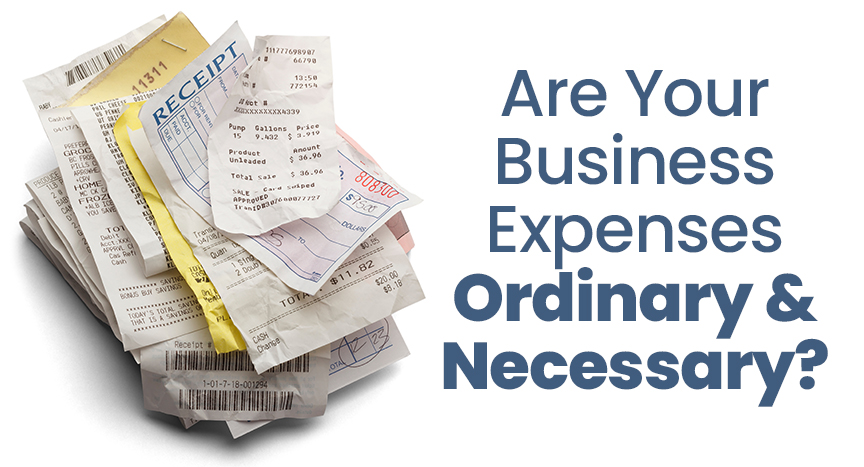Hey IRS, Everything I Do Is Ordinary And Necessary
After decades of toiling away for The Man, unappreciated, underpaid, disrespected, and all that jazz, you finally decided to go into business for yourself. Congratulations!!! So, you begin your new life selling the most advanced widget in the world (if you do not know what a widget is, Google it.) You create an account with the International Widget Association to purchase your widgets, open a bank account, create a name for your business (The Best Widget Are Us), yes, I know it is not original, rent a location on Ventura Blvd., get a business license and resale permit (yes, I can go on and there is more), and finally open your doors for business. You think you are documenting all your ordinary and necessary business expenses.
Success has come your way and you flourish in the widget business. Then, as the story goes, one day you open your mail and receive a love note from those friendly folk at the IRS informing you that it is time for a visit so that the two of you can discuss all those deductions you took related to your business. Your blood pressure explodes, and you head directly for the expensive scotch.
What’s This Notice?
Next you receive an IDR (Information Document Request) from the IRS, 10 pages long, asking you for a list of documents longer than what was released to Wikileaks by Julian Assange. First thing you do is panic. Second is to contact your tax preparer but OOPS, you remember that you self-prepared your tax return to save money. So, with IDR in hand, you begin the arduous process of rummaging through your attic, basement, and trash for all the receipts and bank records you can muster. Then, on the agreed upon day at the appointed time, you are off to see the Wizard, the wonderful Wizard of IRS.
This is where you are going to learn the two lessons of §274, demand for adequate receipts and §162’s requirement for an adequate connection between those expenses and an identifiable trade or business. §162(a), is the deduction statute that gives broad authority for taxpayers to deduct the “ordinary and necessary expenses paid or incurred during the taxable year in carrying on any trade or business.” Almost all the words and phrases in §162(a) are terms of art.
This may come as a surprise, but the IRS, via Congress and the courts, start with a simple premise that everything you receive in your business is income, period. Then by statute, and only by statute, (short of the grace of God) are you allowed to reduce your income with the ordinary and necessary expenses to arrive at a number that is subject to the various taxes. This is where the art comes in. What exactly is ordinary and necessary for your individual business?
Believe it or not, the original case to define what is ordinary and necessary dates to 1933, Welch v. Helvering, 290 U.S. 111 (please finish reading this before you rush to look up this case.) Beware of the Ides of March type thing, the definition is in the eye of the beholder, and the beholder is usually the IRS examiner. And the law gives preference to the eyes of the IRS.
In conclusion, always seek professional guidance before you engage with an IRS examiner. The examiner may not always be correct in what they perceive as ordinary and necessary for your business. But remember the old saying “Rule #1, the boss is always right. Rule #2, when the boss is wrong, see rule #1.

